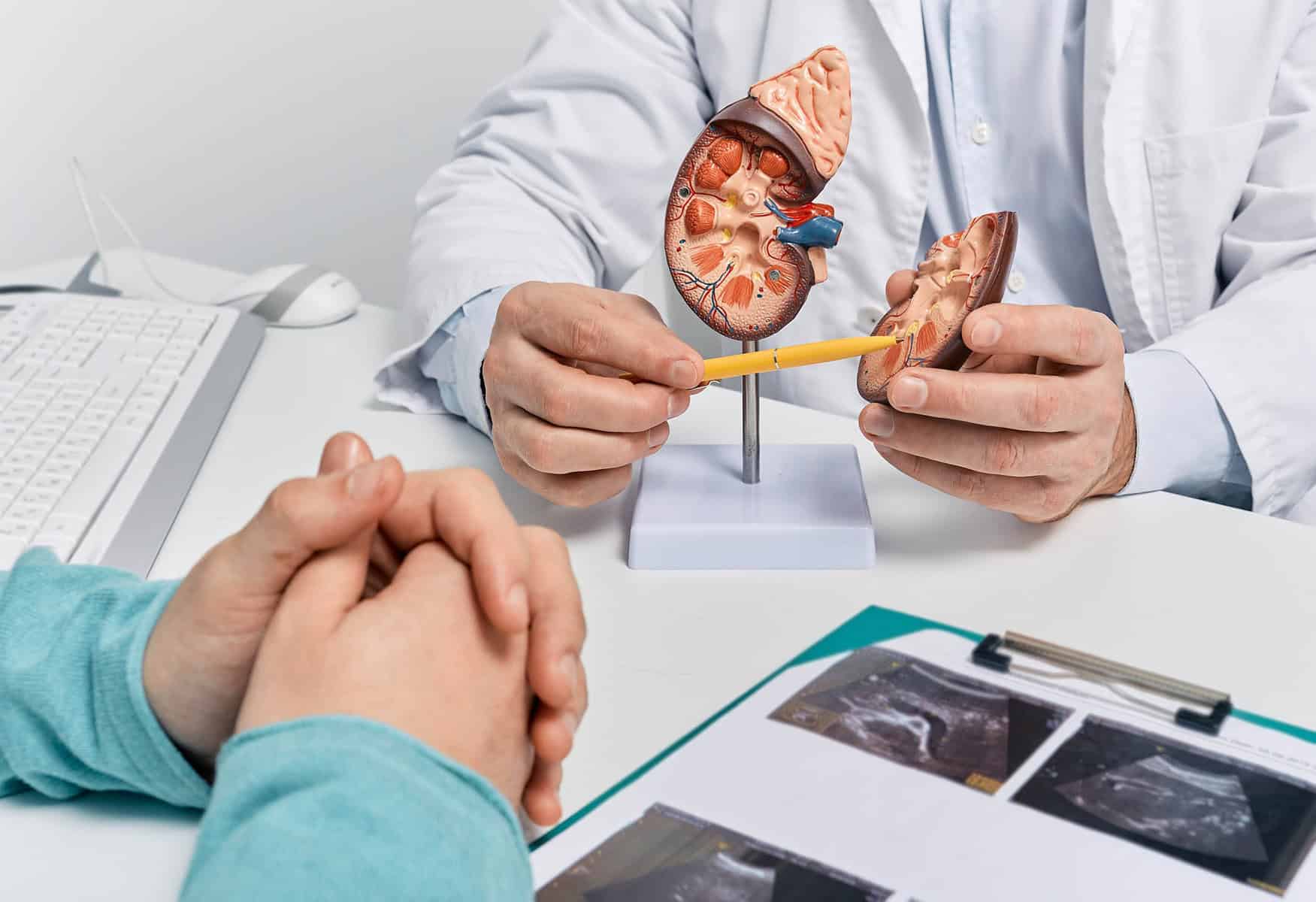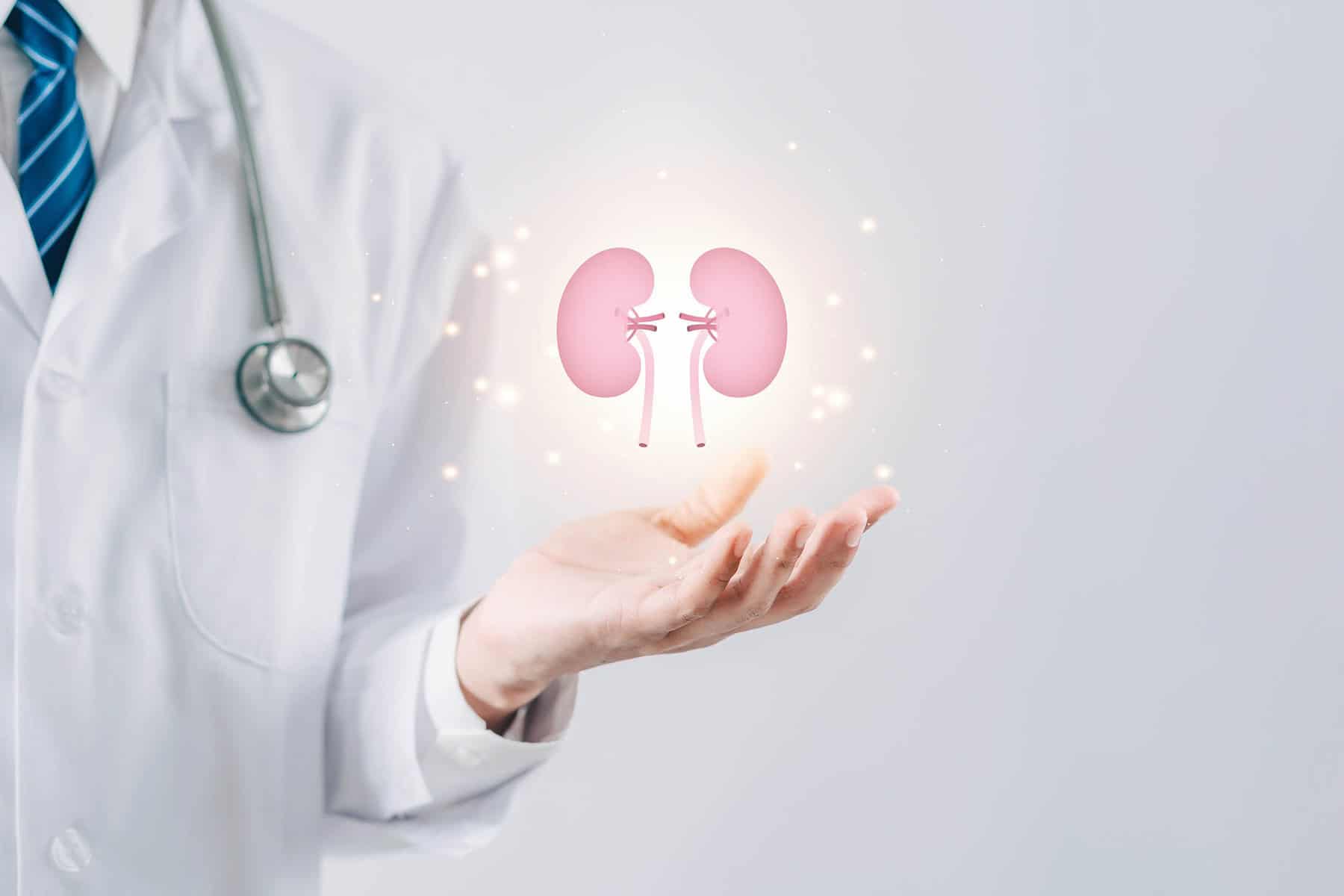Kidney Stone Treatments
Revolutionise your approach to benign prostatic hyperplasia (BPH) with iTind – a revolutionary, non-surgical treatment at The Forbury Clinic. Secure a consultation today!

Overview of Kidney Stone Treatments
Kidney stones can cause significant pain and have a huge impact on your quality of life. At The Forbury Clinic, we understand the importance of effective treatment and swift relief. Our dedicated team of urological specialists is well-versed in the latest methods to treat kidney stones, ensuring that each patient receives the best possible care. We focus not only on treating the existing condition but also on prevention, helping to minimise the risk of recurrence. Read on to learn more about our state-of-the-art treatment options and how they can help restore your health and comfort.

Kidney Stone Treatments
- Shock Wave Lithotripsy (SWL)
- Ureteroscopy
- Percutaneous Nephrolithotomy (PCNL)
Shock Wave Lithotripsy (SWL)
Shock Wave Lithotripsy (SWL) is a non-invasive treatment that uses high-energy sound waves to break kidney stones into small pieces. These tiny fragments can then pass out of the body through the urinary tract with reduced discomfort.
Why consider SWL at The Forbury Clinic?
Non-invasive with no incisions
Outpatient procedure with a quick recovery time
High success rate for stones smaller than 2cm
Ureteroscopy
Ureteroscopy is a minimally invasive procedure where a small scope is inserted into the urethra, bladder, and then into the ureter to locate and remove kidney stones. If the stone is too large, it can be fragmented using a laser before removal.
What makes Ureteroscopy a viable option?
Direct visualisation of stones ensures precise treatment
Ability to remove or break down stones regardless of their mineral composition
Short recovery period, usually resuming normal activities within a couple of days
Percutaneous Nephrolithotomy (PCNL)
For larger kidney stones that cannot be effectively treated with SWL or ureteroscopy, Percutaneous Nephrolithotomy (PCNL) may be the recommended approach. This surgical procedure involves making a small incision in the back to allow direct access to the kidney and the stone.
Benefits of PCNL at The Forbury Clinic:
Ideal for treating large stones efficiently
Minimally invasive compared to traditional open surgery
Usually a one-time procedure with a high success rate
FAQs
- What factors determine the best kidney stone treatment option for me?
The choice of treatment depends on several factors, including the size, type, and location of the kidney stone, as well as the patient’s overall health and medical history. Our urologists will thoroughly assess your specific situation using imaging tests and discuss the most suitable treatment options with you.
- How effective are these kidney stone treatments?
All three treatments—Shock Wave Lithotripsy (SWL), Ureteroscopy, and Percutaneous Nephrolithotomy (PCNL)—have high success rates. Their effectiveness can vary based on the stone’s characteristics and the individual patient, but our urologists are skilled in selecting the best method to maximise success.
- Are there any risks associated with these kidney stone treatments?
As with all medical procedures, there are some risks involved. However, these treatments are generally considered safe and complications are rare. Our urologists will discuss all potential risks with you and take every precaution to ensure a safe and successful outcome.
- How long will recovery take after my kidney stone treatment?
Recovery times can vary depending on the treatment performed. SWL and ureteroscopy typically have shorter recovery periods, with many patients able to resume normal activities within a few days. PCNL may require a slightly longer recovery time due to its more invasive nature, but most patients can return to their regular routines within a week to ten days.
- Will I need to stay in the hospital after my kidney stone treatment?
SWL and ureteroscopy are usually performed on an outpatient basis, meaning you can go home the same day. PCNL may necessitate a short hospital stay, often lasting one or two nights, to ensure proper postoperative care and pain management. Our medical team will provide specific instructions based on your individual treatment plan.

Why Choose The Forbury Clinic?
Choosing The Forbury Clinic means entrusting your health to a team that is passionate about urological wellness. Our tailored treatments, compassionate care, and forward-thinking practices set a new standard in kidney stone management. We collaborate closely with our patients to ensure they have a comprehensive understanding of their condition and the treatment options available.